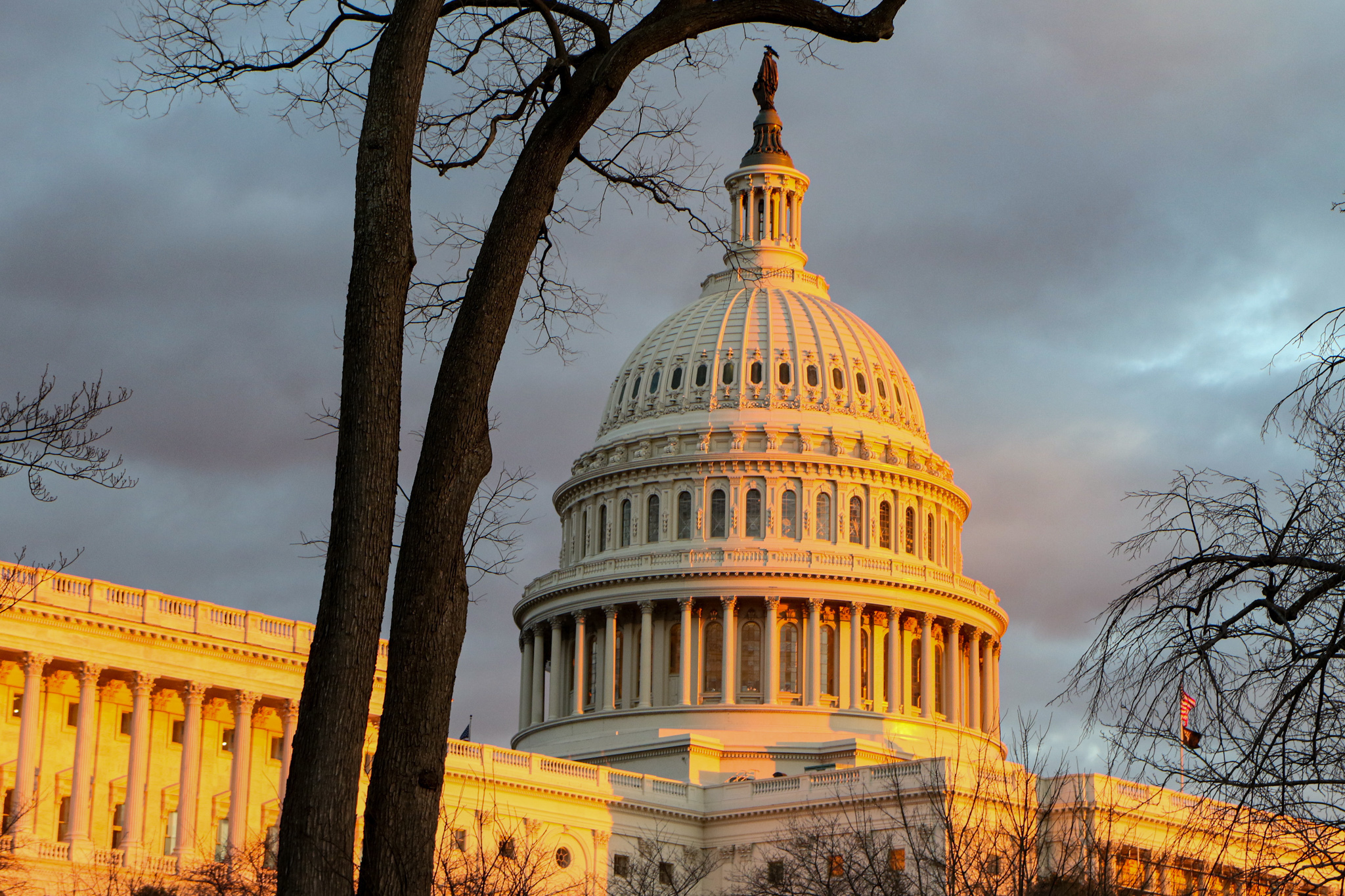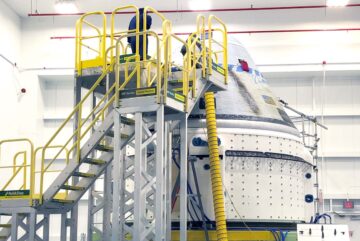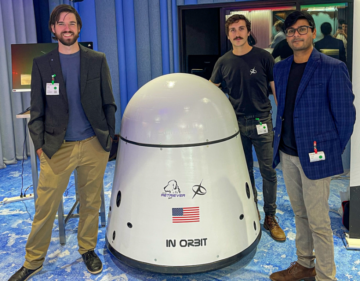
WASHINGTON — The Republican leadership of the House Science Committee has introduced legislation that would create a mission authorization system for commercial space activities and alter plans for a space traffic coordination system.
Reps. Brian Babin (R-Texas) and Frank Lucas (R-Okla.), the chairs of the House Science Committee space subcommittee and the full committee, respectively, introduced the Commercial Space Act of 2023 Nov. 2. The bill may be considered by the committee as soon as this week, although a markup has not yet been announced.
“This bill crafts a favorable and competitive environment right here at home by streamlining our regulatory process and clarifying federal roles in licensing commercial space activities,” Lucas said in the statement about the bill.
A key part of the bill would be to create a “certification” process for commercial spacecraft not licensed by other agencies, such as the Federal Aviation Administration, Federal Communications Commission or the National Oceanic and Atmospheric Administration. Companies would provide basic information about their spacecraft to the Office of Space Commerce, including a debris mitigation plan, and the office would have 60 days to either grant or deny the application.
The certification process is intended to address uncertainty about who is responsible in the government for providing authorization and continuing supervision of commercial space activities, as required under Article 6 of the Outer Space Treaty, but not currently regulated by other agencies. The National Space Council is working on its own approach, which it calls mission authorization, but has yet to publish a proposal.
“To continue strengthening American leadership in space, we must modernize our commercial space framework. The Commercial Space Act will do just that by addressing outdated laws, enhancing innovation, and ensuring our partners are not stymied by regulatory hurdles,” Babin said in a statement about the bill.
Another section of the bill addresses civil space situational awareness (SSA) work led by the Office of Space Commerce. The bill would direct the office to select a consortium led by an academic or nonprofit organization to provide SSA “data, information and services.” That would appear to supersede the office’s own work on an SSA system, called the Traffic Coordination System for Space, currently in development.
The bill would elevate the Office of Space Commerce, currently within NOAA, into the main Department of Commerce, with the director of the office reporting directly to the Secretary of Commerce. That had long been sought by advocates of the office to elevate its profile.
The bill includes several other provisions. One would direct NASA to establish a “Space Situational Awareness Institute” that would lead research on improving SSA. The bill extends the “learning period” restricting the FAA’s ability to regulate commercial spaceflight participant safety from Jan. 1, 2024, to Oct. 1, 2031, a long-term extension that many in industry have sought.
Another section of the bill would establish new requirements if the United States signs on to any non-binding international agreement on norms or rules of behavior in space. Specifically, it would require the president to certify to relevant congressional committees that the agreement is non-binding and for other agencies to confirm that the agreement has “no economically significant impact” on the ability of U.S. non-governmental entities to work in space.
- SEO Powered Content & PR Distribution. Get Amplified Today.
- PlatoData.Network Vertical Generative Ai. Empower Yourself. Access Here.
- PlatoAiStream. Web3 Intelligence. Knowledge Amplified. Access Here.
- PlatoESG. Carbon, CleanTech, Energy, Environment, Solar, Waste Management. Access Here.
- PlatoHealth. Biotech and Clinical Trials Intelligence. Access Here.
- Source: https://spacenews.com/new-commercial-space-bill-addresses-mission-authorization-and-ssa/
- :has
- :is
- :not
- 1
- 2024
- 2031
- 60
- a
- ability
- About
- academic
- Act
- activities
- address
- addresses
- addressing
- administration
- advocates
- agencies
- Agreement
- Although
- American
- an
- and
- announced
- any
- appear
- Application
- approach
- ARE
- article
- AS
- At
- atmospheric
- authorization
- aviation
- awareness
- basic
- BE
- been
- behavior
- Bill
- Brian
- but
- by
- called
- Calls
- Certification
- certify
- civil
- Commerce
- commercial
- commission
- committee
- Communications
- Companies
- competitive
- Confirm
- Congressional
- considered
- consortium
- continue
- continuing
- coordination
- Council
- create
- Currently
- Days
- Department
- Development
- direct
- directly
- Director
- do
- either
- ELEVATE
- enhancing
- ensuring
- entities
- Environment
- establish
- extends
- extension
- favorable
- Federal
- Federal Aviation Administration
- Federal Communications Commission
- For
- Framework
- frank
- from
- full
- Government
- grant
- had
- Have
- here
- Home
- House
- HTTPS
- Hurdles
- if
- improving
- in
- includes
- Including
- industry
- information
- Innovation
- intended
- International
- into
- introduced
- IT
- ITS
- Jan
- jpg
- just
- Key
- Laws
- lead
- Leadership
- Led
- Legislation
- Licensed
- Licensing
- Long
- long-term
- Main
- many
- May..
- Mission
- mitigation
- modernize
- must
- Nasa
- National
- New
- Nonprofit
- norms
- nov
- Oct
- of
- Office
- on
- ONE
- or
- organization
- Other
- our
- outer space
- own
- part
- participant
- partners
- plan
- plans
- plato
- Plato Data Intelligence
- PlatoData
- president
- process
- Profile
- proposal
- provide
- providing
- publish
- Regulate
- regulated
- regulatory
- relevant
- Reporting
- Republican
- require
- required
- Requirements
- research
- responsible
- restricting
- right
- roles
- rules
- s
- Safety
- Said
- Science
- secretary
- Section
- Services
- several
- significant
- Signs
- Soon
- sought
- Space
- spacecraft
- spaceflight
- specifically
- Statement
- States
- streamlining
- strengthening
- subcommittee
- such
- supervision
- system
- that
- The
- their
- this
- this week
- to
- traffic
- u.s.
- Uncertainty
- under
- United
- United States
- we
- week
- which
- WHO
- will
- with
- within
- Work
- working
- would
- yet
- zephyrnet










